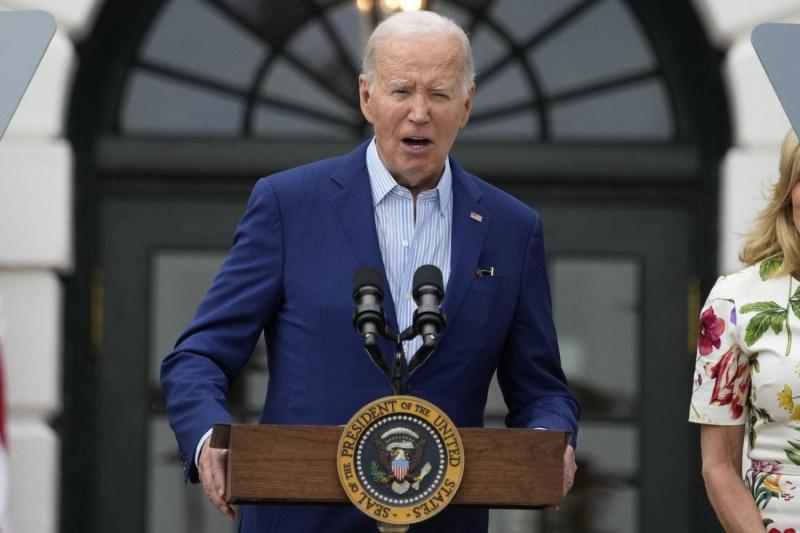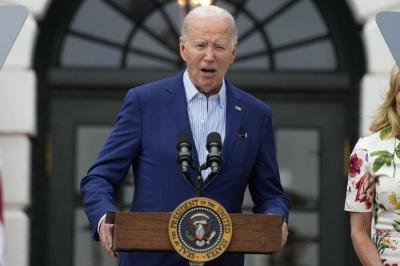There is no doubt that war is the highest degree of testing any relationship between two friendly countries. What if a U.S.-Iranian war breaks out? Which state would immediately declare its support for Washington and rush to join the war? Gulf states, Egypt, and other friendly countries would not quickly rush to fight alongside Washington—only Israel would. This is its role; Washington has used Israel to balance, and sometimes confront, hostile powers. In the Iraq war and occupation, Israel was the only regional power that offered military assistance, which Washington declined.
The images and concepts become muddled when interests diverge at times. Washington openly supports Israel in its war against Hamas in Gaza and provides aid, but it has no interest in prolonging the war and does not want to antagonize the Arab world. It supports some form of state for the Palestinian people. President Joe Biden has a historic project on his desk, a strategic defense agreement with Saudi Arabia that requires a two-thirds Senate approval, and he can present it as a peace project, not a war, similar to an agreement with Israel.
At the same time, Saudi Arabia has set two conditions for accepting the agreement: Israel must stop fighting, and it must accept a Palestinian state. The dilemma is that the Israelis, not just Netanyahu and his extremist allies, do not want to stop the war yet and definitely reject a state for the Palestinians.
We are facing an unusual situation. Previous presidents, such as Carter and Clinton, tried to exert pressure and obtained "concessions" from Israel for their Arab friends in the context of conflict and land, such as Egypt and Jordan, or in the context of bilateral relations like those with the UAE, Morocco, Bahrain, and Sudan. The conditions for the promised strategic defense agreement with Riyadh are different. It has become like the famous camel-cat deal, where Israel is essential.
America is an important force in building a defensive front against regional threats, including Iran, and the condition here is Israel. Israel, for its part, is interested in a relationship with Saudi Arabia but within the framework of mutual bilateral interests without tying it to Palestine and the Palestinians. Thus, the deal has become complicated.
The obstacles began with the October 7, 2023 attack, which seems to have been planned by Iran and Hamas to sabotage the Saudi-American agreement, and thus far, they have succeeded. Netanyahu, in turn, has prolonged the war in Gaza; he is also against the conditions of the Saudi agreement, if not against the entire strategic agreement.
There is much to say about the U.S.-Saudi defense agreement itself and its implications and importance for the region, but I prefer not to rush into it as it may not see the light of day this year. President Biden is an expert in congressional affairs; he spent 36 years in its corridors, and it is said that he can achieve the two-thirds majority, meaning 51 Democratic senators and 16 from his Republican opponents! It would be remarkable if he accomplishes this, especially since we are in an election year.
Time is the challenge, as members of Congress will leave the capital in August to start their election campaigns. Can he, with the limited time remaining, present the agreement project and initiate discussion and voting on it? We understand why Hamas did what it did last October, but why does Netanyahu continue to challenge Biden, delaying to extend the war for several months without achieving an additional victory? It is likely that Netanyahu is playing, hoping that the Saudis will back down from the Palestinian state condition and accept a relationship limited to bilateral interests, or that Biden will grow weary and abandon his project with Riyadh, which would prevent Netanyahu from having to make concessions to the U.S.
I believe he has deliberately slowed down; the evidence is that he accepted a ceasefire this week, the same offer he rejected two months ago, which had been proposed by the Egyptian team with the approval of the Americans and the French. We face a bumpy road on all fronts, whether in Gaza, with the Israelis, or in Congress. If confrontations erupt between Israel and Hezbollah, this will eliminate the chance for the agreement this year.




